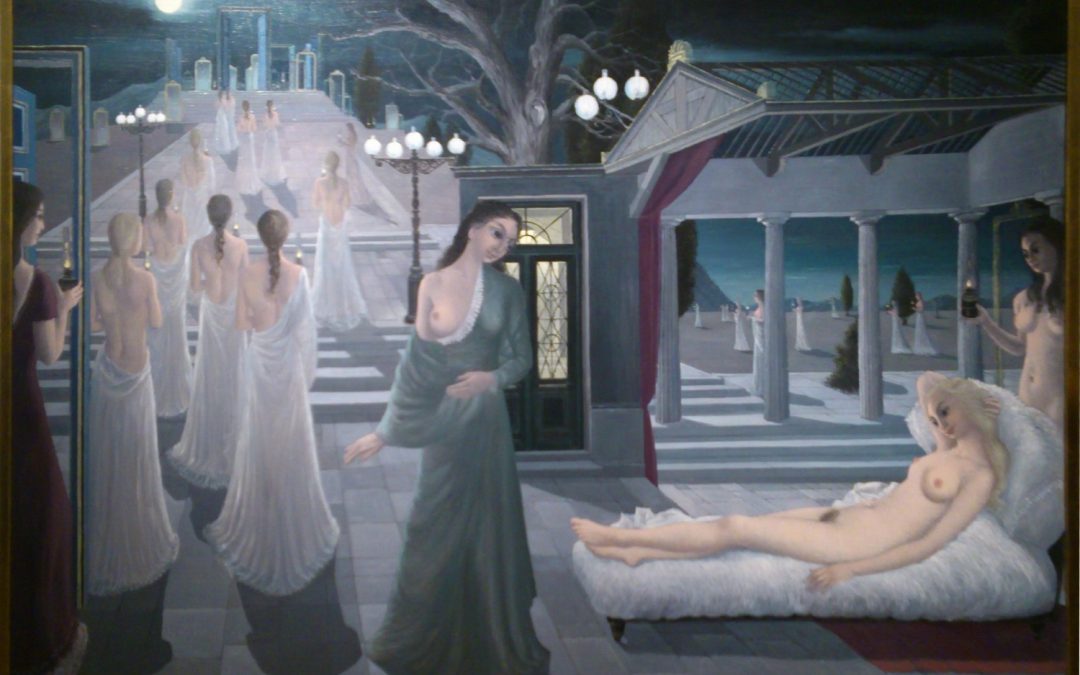By Leslie Ullman (from Natural Histories)
After “L’Acropole,” by Paul Delvaux
First he noticed my
face, he said.
At a distance
the bones surfaced,
they split the light
into pools of no light
and my hair, he said,
so colorless
yet full of breath.
He would walk
into it, he said.
He would disappear.
I undressed for him,
the room so familiar
it contained no odors.
The white walls,
their shadows in place
fell away, and my body
emerged as space
shaped like a body.
Leslie Ullman is the author of four poetry collections and, most recently, a hybrid book of craft essays and poems Library of Small Happiness, 3: A Taos Press, 2017. She is Professor Emerita at U.T.-El Paso and teaches in the low-residency MFA program at Vermont College of the Fine Arts. Her awards include the Yale Series of Younger Poets Award, the Iowa Poetry Prize, two NEA fellowships and the 2014 New Mexico/Arizona Book Award for poetry.

This poem by Leslie Ullman, one of my favorite poets, responds to a very quixotic and discomfiting artwork. The poem is so well done through the use of assonance which gently leads us to the surprising ending. I especially love the final couplet.